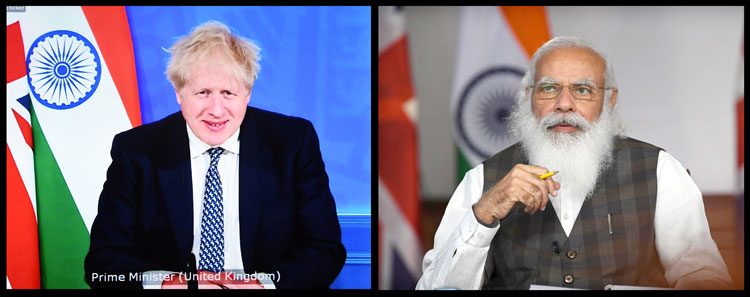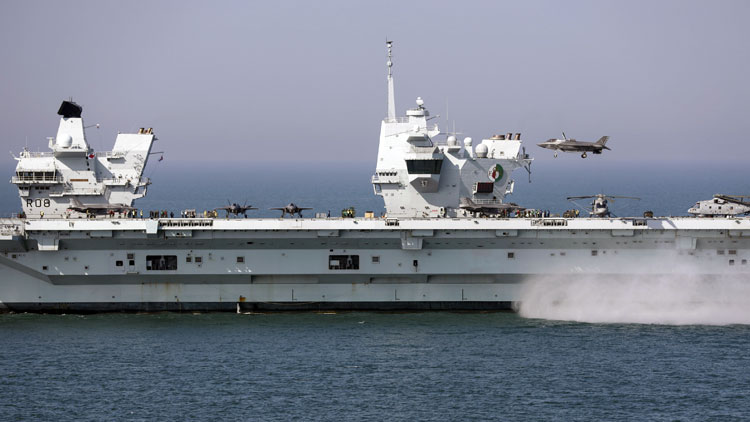INDIAN ARMED FORCES CHIEFS ON OUR RELENTLESS AND FOCUSED PUBLISHING EFFORTS

The insightful articles, inspiring narrations and analytical perspectives presented by the Editorial Team, establish an alluring connect with the reader. My compliments and best wishes to SP Guide Publications.

"Over the past 60 years, the growth of SP Guide Publications has mirrored the rising stature of Indian Navy. Its well-researched and informative magazines on Defence and Aerospace sector have served to shape an educated opinion of our military personnel, policy makers and the public alike. I wish SP's Publication team continued success, fair winds and following seas in all future endeavour!"

Since, its inception in 1964, SP Guide Publications has consistently demonstrated commitment to high-quality journalism in the aerospace and defence sectors, earning a well-deserved reputation as Asia's largest media house in this domain. I wish SP Guide Publications continued success in its pursuit of excellence.
- MoD initiates comprehensive review of Defence Acquisition Procedure 2020, pushes for defence reforms
- G7: The Swansong
- Kalinga Connect: South Asia to Polynesia
- Must Credit DRDO for Operation Sindoor, now what is next for defence R&D?
- The layered Air Defence systems that worked superbly, the key element of Operation Sindoor
- Operation Sindoor | Day 2 DGMOs Briefing
- Operation Sindoor: Resolute yet Restrained
India-UK Defence Cooperation
The Modi-Johnson virtual meet and adoption of the India-UK Roadmap to 2030 have opened new vistas for taking the bilateral defence relationship to the next level
 |
The Author is Former Director General of Information Systems and A Special Forces Veteran, Indian Army |

Following the cancellation of the visit by British Prime Minister Boris Johnson to India because of upsurge in the pandemic, a virtual meet took place on May 04, 2021 between Prime Minister Narendra Modi and Prime Minister Boris Johnson. The two Prime Ministers agreed to a common vision for a new and transformational Comprehensive Strategic Partnership between India and UK. They adopted an India-UK Roadmap to 2030.
Both Prime Ministers welcomed the launch of Enhanced Trade Partnership showing intent to negotiate a Free Trade Agreement (FTA) and doubling India-UK trade by 2030
Both leaders emphasised that bilateral cooperation can not only reap mutual benefits but also be a global force. Modi thanked Johnson for the assistance in the form of critical medical equipment for combating the pandemic and agreed to expand UK-India vaccines partnership. Both welcomed the launch of Enhanced Trade Partnership showing intent to negotiate a Free Trade Agreement (FTA) and doubling India-UK trade by 2030.
Both Prime Ministers emphasised commitment to enhanced partnership in science, education, research and innovation, welcomed signing of new India-UK MoU on Telecom/ICT, joint declaration of Intent on Digital and Technology, new high-level dialogues on technology, joint research into Covid-19 and zoonotic, and advance understanding of weather and climate science.
Both countries agreed to deepen defence and security cooperation through the India-UK Defence and International Security Partnership framework
Both agreed to deepen defence and security cooperation through the India-UK Defence and International Security Partnership framework and welcomed the finalisation of the new logistics MoU, agreed to increase maritime co-operation, India inviting the UK’s Liaison Officer to India’s Information Fusion Centre, establishing an annual India-UK Maritime Dialogue and strengthening operational coordination, in addition to joint exercises.

They agreed to collaborate on key military technologies including combat aircraft, maritime propulsion system and complex weapons, harnessing the strengths of Indian and British industries, government laboratories and academia to help deliver the next generation of defence and security capabilities through co-development and co-production.
Both leaders reiterated support to a free, open, peaceful and secure cyberspace and agreed to strengthen cooperation through an enhanced India-UK cyber security partnership to tackle growing cyber threats. They affirmed their shared vision of an open, free, inclusive and rules-based Indo-Pacific region. Both condemned terrorism in all its forms and agreed to continue cooperation in counter-terrorism. Both sides expressed concern at the ongoing violence in Afghanistan, agreeing that any political solution in Afghanistan should be Afghan-owned and Afghan-led.
Both leaders reiterated support to a free, open, peaceful and secure cyberspace and agreed to strengthen cooperation through an enhanced India-UK cyber security partnership
UK reaffirmed its support for India’s permanent membership in a reformed UN Security Council, as well as India’s entry into the Nuclear Suppliers Group. They also agreed to step up India-UK collaboration on climate change.
Highlights of the India-UK Roadmap to 2030 pertaining to defence and security cooperation include:
- Promote Track 1.5 and Track 2 Dialogues between think tanks and academic institutions on aspects of strategic relations.
- Enhance bilateral engagement within the Indian Ocean Rim Association (IORA) framework and explore cooperation under the Indo-Pacific Oceans Initiative (IPOI).
- Develop India-UK space cooperation framework.
- Work on strategic partnership to strengthen efforts to tackle cyber, space, crime and terrorist threats and develop a free, open and secure Indo-Pacific Region.
- Expand cooperation under the Defence and International Security Partnership (DISP) agreed in 2015.
- Improve maritime cooperation through partnership in the Western Indian Ocean, with a new Maritime Dialogue, Grey and Dark Shipping information sharing and mechanisms for operational co-ordination.
- Hold Joint Service Exercises and demonstrate greater complexity in military exchanges.
- New Strategic Collaborative Partnership on research, innovation, technology and industry to develop transformational defence and security capabilities.
- Broaden dialogue on Combat Air collaboration to determine how UK can support India’s LCA MK2 program.
- Enhance cooperation to promote international security and stability in cyberspace.
- Strengthen cooperation to take decisive and concerted actions against globally-proscribed terrorists and terror entities.
UK’s renewed focus on the Indo-Pacific is of strategic importance for both India and UK
Post BREXIT Britain’s emphasis understandably is on boosting economic relationships and trade partnerships. New trade and investments worth £1 billion were announced by the two sides before the virtual summit, which includes around £533 million of new investment from India in the UK. The Serum Institute of India is also investing £240 million in UK. At the same time, UK’s renewed focus on the Indo-Pacific is of strategic importance for both India and UK. Under Johnson, Britain’s Integrated Review released in March 2021 states, “In the decade ahead, the UK will deepen our engagement in the Indo-Pacific, establishing a greater and more persistent presence than any other European country."
HMS Queen Elizabeth, the British Royal Navy’s new aircraft carrier, will lead an allied task force into the region in 2021 and a maritime exercise with the Indian Navy is on the cards
Whether UK will join the Quad (US, India, Japan, Australia) or only exercise with and give further impetus to the Five Power Defence Arrangement (FPDA) is yet to be seen though the above mentioned Integrated Review does mention enhancing UK’s engagement with FPDA and increasing engagement with regional security groupings. Notably, HMS Queen Elizabeth, the British Royal Navy’s new aircraft carrier, will lead an allied task force into the region in 2021. A maritime exercise with the Indian Navy is on the cards. The UK is apparently adapting to changing strategic realities and recognizes India as a critical node between the Indian and Pacific Oceans.
Though UK accounts for 16 percent of global defence sales, its share in the Indian defence market over the years has declined to around two percent. The Modi-Johnson virtual meet and adoption of the India-UK Roadmap to 2030, however, have opened new vistas for taking the bilateral defence relationship to the next level including for co-producing weapon platforms and defence equipment in India under the ‘Make in India’ initiative.





